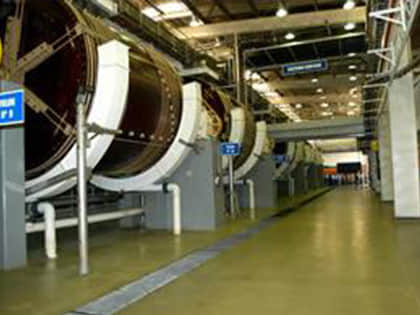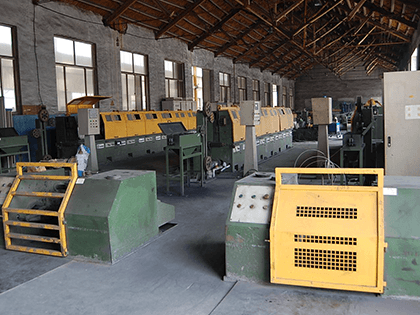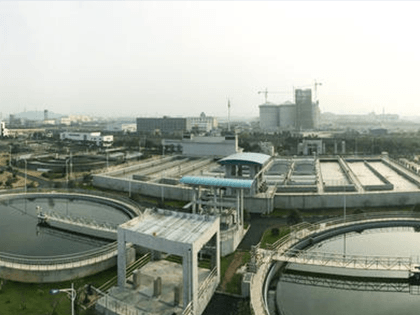Use extracting chemical reagent to eliminate heavy metals in sludge
Author: Taida machine Release time:2016-08-24
Reading guidance:Sludge treatment and disposal is the focus of the work of pollution control in China at present, according to the relevant data shows, our country sludge is currently disposed disposal industry develop
Sludge treatment and disposal is the focus of the work of pollution control in China at present, according to the relevant data shows, our country sludge is currently disposed disposal industry development situation is very good, there will be 60 million invested in sludge treatment and disposal of the market. Therefore, in the future for a period of time will be sludge treatment and disposal industry development of the critical period. Using chemical method to deal with the cost of heavy metals in the sludge with respect to the other method is higher, but efficient.
Heavy metals in the sludge extraction is the granular sludge of heavy metals by solid phase separation into the liquid phase are removed, thereby reducing the heavy metal content in solid phase. At present in the heavy metal extraction methods can be divided into inorganic acid leaching method and complex agent extraction method.
Inorganic acid leaching method: chemical extraction of domestic and foreign scholars on the heavy metals in the sludge of. Abrego a number of studies on sludge leaching results showed that nitrate, Cu, leaching rate of Ni can reach 86.7% 100%. veeken respectively, using citric acid heavy metal leaching, leaching efficiency increased with the increase of temperature and the concentration of citric acid. 3 - 4, Cu in pH, leaching rate of Zn was 60% to 70%, 90% to 100%. due to complex characteristics of citric acid and citric acid anion, heavy metal leaching in PH3) were 5 cases. Citric acid can be extracted easily degraded. The heavy metals from the citric acid solution, and the recycling of citric acid solution can reduce the operating cost. Due to reduce the pH value of the sludge by acid, is not conducive to the rapid transformation of heavy metal sulfide as soluble ions, to optimize the treatment of sludge in the mixed acid by many scholars Heavy metals. If adding hydrogen peroxide increase redox potential of the sludge can improve the heavy metal leaching effect. Yoshizak-i etc. using 8% phosphoric acid and hydrogen peroxide at room temperature treatment sludge cake, hydraulic retention time LH treatment effect quite in 1n hydrochloric acid. In the use of hydrogen peroxide, Cu is easy to removal from sludge, most of the phosphate can recycling.
Method: using organic complex agent complex agent to remove heavy metals in sewage sludge refers to the addition of complex agent in some insoluble metal compounds, transformed into soluble metal complex was removed. The study shows that the organic complex agent EDTA two B three amine five acetic acid (DTPA) and other heavy metal removal effect is good such as the use of 0.01 0.1mol/l), the removal of EDTA Pb, the leaching rate of 60%. when using EDTA enough, no matter in which heavy metal matrix in the removal rate are not influenced by pH. In addition, EDTA for the removal of heavy metals and heavy metals in sludge or sources in soil and distribution related to both. Organic acid or organic complexes, the effect of removal of heavy metals in the sludge are better. However, the study only in the laboratory on a small amount of sludge treatment, and on a large amount of heavy metal containing sludge treatment is the disadvantage of a chemical reagent Higher costs, the two is the disposal of the extract is still difficult to solve. At present, the domestic chemical reagent treatment of large quantities of heavy metal containing sludge reported.
Heavy metals in the sludge extraction is the granular sludge of heavy metals by solid phase separation into the liquid phase are removed, thereby reducing the heavy metal content in solid phase. At present in the heavy metal extraction methods can be divided into inorganic acid leaching method and complex agent extraction method.
Inorganic acid leaching method: chemical extraction of domestic and foreign scholars on the heavy metals in the sludge of. Abrego a number of studies on sludge leaching results showed that nitrate, Cu, leaching rate of Ni can reach 86.7% 100%. veeken respectively, using citric acid heavy metal leaching, leaching efficiency increased with the increase of temperature and the concentration of citric acid. 3 - 4, Cu in pH, leaching rate of Zn was 60% to 70%, 90% to 100%. due to complex characteristics of citric acid and citric acid anion, heavy metal leaching in PH3) were 5 cases. Citric acid can be extracted easily degraded. The heavy metals from the citric acid solution, and the recycling of citric acid solution can reduce the operating cost. Due to reduce the pH value of the sludge by acid, is not conducive to the rapid transformation of heavy metal sulfide as soluble ions, to optimize the treatment of sludge in the mixed acid by many scholars Heavy metals. If adding hydrogen peroxide increase redox potential of the sludge can improve the heavy metal leaching effect. Yoshizak-i etc. using 8% phosphoric acid and hydrogen peroxide at room temperature treatment sludge cake, hydraulic retention time LH treatment effect quite in 1n hydrochloric acid. In the use of hydrogen peroxide, Cu is easy to removal from sludge, most of the phosphate can recycling.
Method: using organic complex agent complex agent to remove heavy metals in sewage sludge refers to the addition of complex agent in some insoluble metal compounds, transformed into soluble metal complex was removed. The study shows that the organic complex agent EDTA two B three amine five acetic acid (DTPA) and other heavy metal removal effect is good such as the use of 0.01 0.1mol/l), the removal of EDTA Pb, the leaching rate of 60%. when using EDTA enough, no matter in which heavy metal matrix in the removal rate are not influenced by pH. In addition, EDTA for the removal of heavy metals and heavy metals in sludge or sources in soil and distribution related to both. Organic acid or organic complexes, the effect of removal of heavy metals in the sludge are better. However, the study only in the laboratory on a small amount of sludge treatment, and on a large amount of heavy metal containing sludge treatment is the disadvantage of a chemical reagent Higher costs, the two is the disposal of the extract is still difficult to solve. At present, the domestic chemical reagent treatment of large quantities of heavy metal containing sludge reported.
:Sewage treatment plants face with crisis; Sludge disposal is very important :Have a good understand to shape of heavy metals; Pay attention to the influence of agricultural utilization of sludge
Relevant news
- 2016-01-12OSC-II Model Sludge Dryer Deliv
- 2016-01-1215T/Day Aerobic Dynamic Ferment
- 2016-01-12Matters Should Be Paid Attentio
- 2016-01-12Methods exploration of chemical
- 2016-01-12Analysis of circulating fluid b
Industry trends
- 2016-01-12Comparison Between Different Sl
- 2016-01-12Adding Calcium and Stable Dispo
- 2016-01-12Sludge Treatment: Methods for S
- 2016-01-12Use Dyeing Sludge As Resource
- 2016-01-12Current situation of sludge dis
Hot spots
Hot-sale products

- Leather Industry Sludge Drying
Production Capacity:1-2200t/h

- Welding Plating Sludge Drying S
Production Capacity:1-2200t/h

- Municipal Sludge Drying Solutio
Production Capacity:1-2200t/h

- Manure Sludge Drying Solution
Production Capacity:1-2200t/h
 中文
中文 English
English Home
Home
